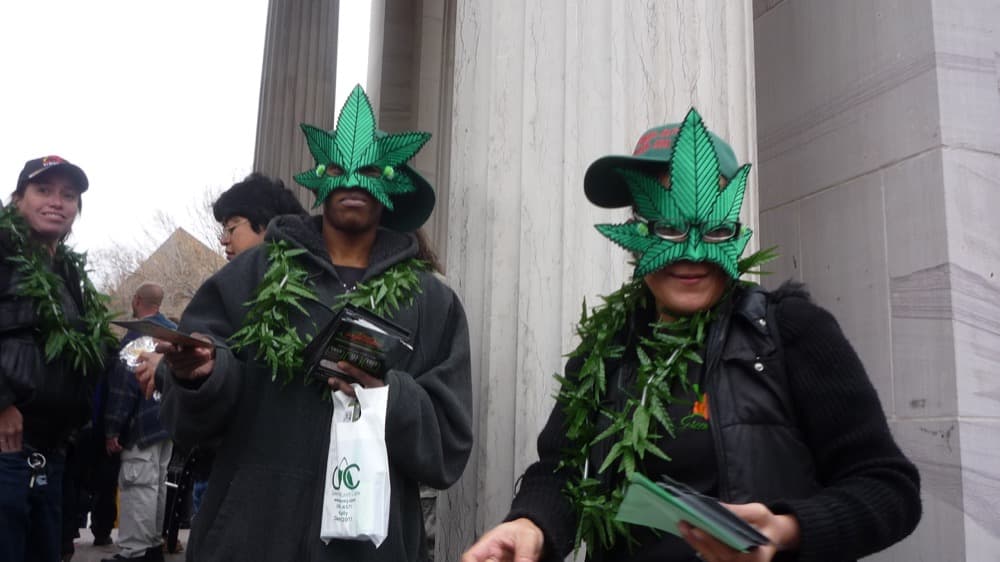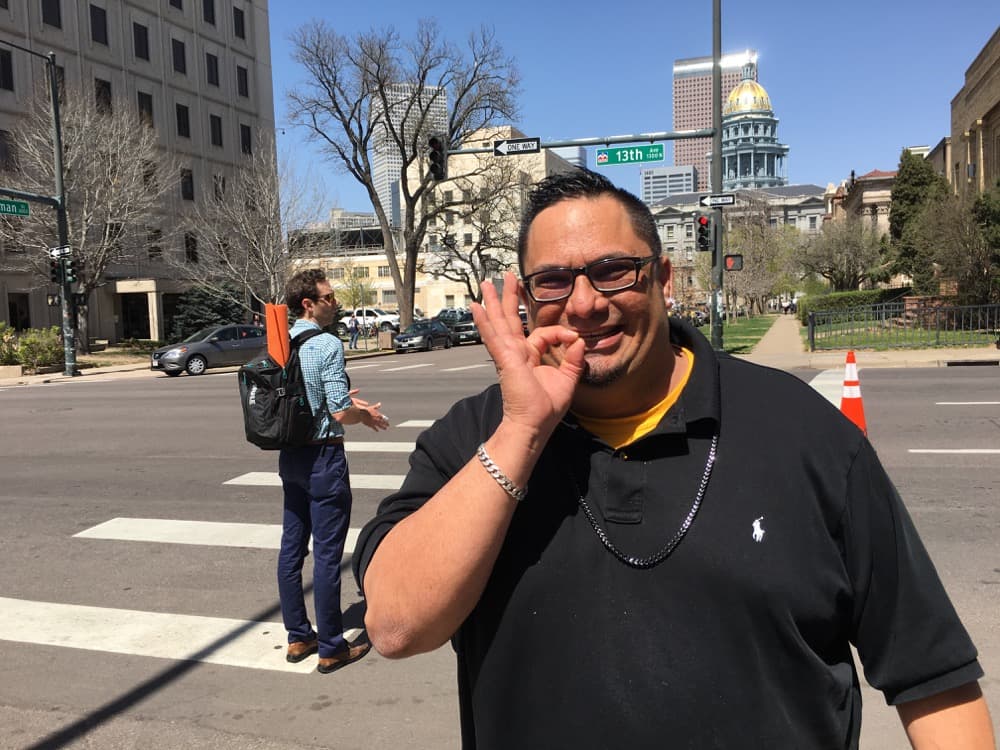
The organizers of the 4/20 Rally are fighting to save their yearly celebration of cannabis culture.
Last month, the city of Denver announced a $12,000 fine and a ban that would prevent marijuana cultural organizer Miguel Lopez from obtaining another event permit for three years. The event also would lose its claim to the 4/20 date at Civic Center Park, effectively killing it.
Miguel Lopez (read our profile here) and his colleagues Friday filed a 14-page appeal of the city's decision, which describes the Denver event as "the largest 420 event on Earth" with 50,000 annual attendees.
"The 420 Rally is singled out improperly because of the City and County’s hostility and animus against our message; our taste in music, culture, and art; our participants; our organizational leadership and their history of political activism; and because of actions of third parties, who generate the legendary 'cloud of smoke' every year, but who are persons unaffiliated with the Rally’s leadership and organization," the letter notes.
Lopez said this afternoon that he believes that monied interests in the marijuana business have pressured the city to crack down on his grassroots event. (He named some specific people, but we haven't yet reached them for a response.)
"They have been pushing the city for a long time, that they don’t like us. They’re just power grabbers. They’re not really interested in the people," he said.

Claims and responses:
The organizers claim that city officials soured on the event following a shooting near the rally in 2013. (The organizers deny the shooting had any connection to the rally.) Following the shooting, the city required that the organizers pay for fencing and security screening for each attendee at a purported cost of about $2 million over four years.
Noise
The city's letter cites complaints from people in city and state offices, implying that the event violated a rule that says it can't be a "nuisance" with its sound. The rally leaders say they were never notified of those complaints.
The city acknowledges that the complaints were never conveyed to organizers, saying that this was a "warning" for future events. The city also noted that the rally remained within allowed noise levels, according to sound meters.
Trash
Media outlets documented garbage spread around Civic Center on the morning after the rally. The organizers have blamed that incident on outsider intruders who they say slit bags left out overnight. Moreover, they claim that their deadline for complete clean-up was 5 p.m. on April 21, and that the park was clean by then.
However, Denver's letter claims that a "timely and effective" clean-up was supposed to be done on the night of the event. Lopez disputes that deadline.
Furthermore, the city states that no trash cans were available for the first couple hours of the event. The city also claimed that a review of surveillance camera footage did not show any person opening the trash bags. The 4/20 organizers have demanded access to that video and to other records.
Security
The city claims that poorly managed security screening entrances created long lines, and that as a result, crowds knocked down fences to gain entrance. Officials noted that there were supposed to be four points of entry, but only three were available for the morning of the event, and that there was "less than the specified number of security guards and staff."
The organizers say that they got the fences put back up within three minutes when they were knocked down and that there was no violence at the event. "Long lines itself cannot be a violation. We understand people were frustrated at the popularity of our event," the letter notes.
Health
The city reported that eight vendors were unlicensed. The rally organizers said that the vendors had certified they had appropriate licenses and that the unlicensed vendors were shut down once city inspectors raised the issue.
Roads and sidewalks
The city claimed the event allowed vehicles to block sidewalks. The organizers say they were actively directing people to the proper places.
"None of the alleged violations come close to being 'substantial,'" the response letter claims. "None of it caused any actual harm to any actual person."










